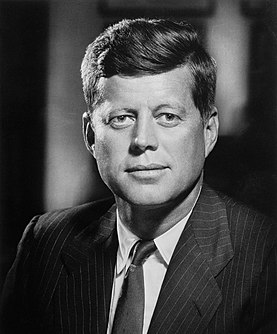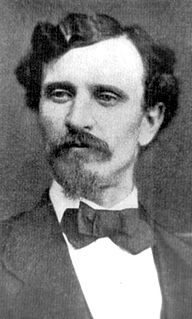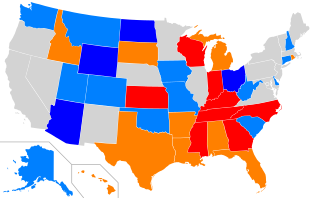 W
WThe 1948 United States Senate election in Texas was held on November 2, 1948. After the inconclusive Democratic Party primary in July, a hotly contested runoff was held in August in which U.S. Congressman Lyndon B. Johnson was officially declared to have defeated former Texas governor Coke Stevenson for the party's nomination by eighty-seven votes. The state party's executive committee subsequently confirmed Johnson's nomination by a margin of one vote. The validity of the runoff result was challenged before the US Supreme Court due to allegations of irregularities, and in later years, testimony by the parties involved indicated that widespread fraud occurred and that friendly political machines produced the votes needed for Johnson to defeat Stevenson. After years of desultory opposition to Democrats during the post-Reconstruction years of the Solid South, Republicans vigorously contested the general election by nominating businessman and party activist Jack Porter, who waged an aggressive campaign. Johnson won his first term in the Senate, but by a closer margin than usual for Texas Democrats.
 W
WThe 1960 United States presidential election in Illinois took place on November 8, 1960, as part of the 1960 United States presidential election. State voters chose 27 representatives, or electors, to the Electoral College, who voted for president and vice president.
 W
WThe 2016 Arizona Democratic presidential primary was held on March 22 in the U.S. state of Arizona as one of the Democratic Party's primaries ahead of the 2016 presidential election.
 W
WThe 2016 Arizona Republican presidential primary took place on March 22 in the U.S. state of Arizona as one of the Republican Party's primaries ahead of the 2016 presidential election. Despite a late challenge by Texas Senator Ted Cruz, Donald Trump won the primary and netted all 58 delegates in the winner-take-all contest. On the same day were held Democratic and Green primaries in Arizona, as well as Republican and Democratic caucuses in Utah and Idaho Democratic caucus, so the day was dubbed "Western Tuesday" by media.
 W
WThe American Center for Voting Rights (ACVR) was a non-profit organization founded by Mark F. "Thor" Hearne that operated from March 2005 to May 2007 and pushed for laws to reduce voter intimidation and voter fraud, and supported requiring photo ID for voters.
 W
WJohn Middleton Clayton was an American politician who served as a Republican member of the Arkansas House of Representatives for Jefferson County from 1871 to 1873 and the Arkansas State Senate for Jefferson County. In 1888, he ran for a seat in the United States House of Representatives but lost to Clifton R. Breckinridge. Clayton challenged the results and was assassinated in 1889 during the challenge to the election. He was declared the winner of the election posthumously. The identity of his assassin remains unknown.
 W
WBarnes Compton was a Representative of the fifth congressional district of Maryland and a Treasurer of Maryland.
 W
WThe Florida Central Voter File was an internal list of legally eligible voters used by the US Florida Department of State Division of Elections to monitor the official voter lists maintained by the 67 county governments in the State of Florida between 1998 and January 1, 2006. The exclusion of eligible voters from the file was a central part of the controversy surrounding the US presidential elections in 2000, which hinged on results in Florida. The 'Florida Central Voter File' was replaced by the Florida Voter Registration System on January 1, 2006, when a new federal law, the Help America Vote Act, came into effect.
 W
WHacking Democracy is a 2006 Emmy nominated documentary film broadcast on HBO and created by producer / directors Russell Michaels and Simon Ardizzone, with producer Robert Carrillo Cohen, and executive producers Sarah Teale, Sian Edwards & Earl Katz. Filmed over three years it documents American citizens investigating anomalies and irregularities with 'e-voting' systems that occurred during the 2000 and 2004 elections in the United States, especially in Volusia County, Florida. The film investigates the flawed integrity of electronic voting machines, particularly those made by Diebold Election Systems, exposing previously unknown backdoors in the Diebold trade secret computer software. The film culminates dramatically in the on-camera hacking of the in-use / working Diebold election system in Leon County, Florida - the same computer voting system which has been used in actual American elections across thirty-three states, and which still counts tens of millions of America's votes today.
 W
WThe 2018 election in North Carolina's 9th congressional district was held on November 6, 2018, to elect a member for North Carolina's 9th congressional district to the United States House of Representatives.
 W
WThe Russian government interfered in the 2016 U.S. presidential election with the goals of harming the campaign of Hillary Clinton, boosting the candidacy of Donald Trump, and increasing political and social discord in the United States. According to the U.S. intelligence community, the operation—code named Project Lakhta—was ordered directly by Russian President Vladimir Putin. The Special Counsel's report, made public in April 2019, examined numerous contacts between the Trump campaign and Russian officials but concluded that there was insufficient evidence to bring any conspiracy or coordination charges against Trump or his associates.
 W
WThe Senate Intelligence Committee report on Russian interference in the 2016 United States presidential election, officially titled Report of the Select Committee on Intelligence United States Senate on Russian Active Measures Campaigns and Interference in the 2016 U.S. Election, is the official report in five volumes documenting the findings and conclusions of the United States Senate Intelligence Committee concerning the Russian attack efforts against election infrastructure, Russia's use of social media to affect the election, the U.S. government's response to Russian activities, review of the Intelligence Community Assessment, and counterintelligence threats and vulnerabilities. The redacted report is 1,313 pages long. It is divided into five volumes.
 W
WVoter ID laws in the United States are laws that require a person to provide some form of official identification before they are permitted to register to vote, receive a ballot for an election, or to actually vote in elections in the United States.